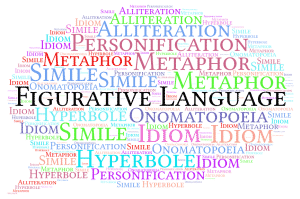
Without a doubt, the publishing world is changing. While high-profile authors continue enjoying their well-earned success, indie authors are starting to take center stage, thanks to a higher level of publicity gained by cheaper and more effective marketing options. Book platforms are changing, too, as are the ways books are written, edited, and promoted. Many of these changes will affect a writer’s bottom line, so being prepared for them will lessen the financial blow and give writers time to adapt.
E-Book Sales Continue to Explode
Despite the ongoing reports about Barnes and Noble shutting down its e-book store and discontinuing sales and support of the beloved Nook e-readers, Amazon’s Kindle line continues to grow and change. Amazon reports that more than 70% of its 2016 adult fiction sales were in digital format. What does this mean for new writers? E-book publishing is the most cost-effective way to break into the market as e-books can be widely distributed almost instantly. Focus on driving your digital sales.
Readers’ Perceptions about Indie Authors Are Shifting
A few years ago, an indie author may have felt successful if a few friends and family members shared word of their book with other friends and family. Now, readers are starting to shift away from the expected by best-selling authors and are widening their reading horizons to include new independent, self-published authors. Another report from Amazon shows small press and indie author sales accounted for a full 50% of its market share in 2016!
What does this mean for indie authors? It means as an indie author, you have doors opening for you everywhere you look. If you have the writing and editing skills to create a quality product, the market is yours for the taking. Competition among indie authors is fierce, with most e-books priced below $3.00, so you’ll want to beef up your social marketing skills and cultivate a loyal reader base. The hard work will definitely pay off on the bottom line.
Think Internationally
Publishing “wide” is a trend writers, editors, and agents are starting to employ as authors seek to de-limit themselves from the U.S. market alone. While this involves extra cost, the author or agent can do some research into the reading markets of other countries to determine if their theme fits what is popular elsewhere. If the primary language of the target country is other than the author’s first language, they will need to hire a translator.
If you want to have work translated, expect to pay between $0.13 and $0.25 per word, depending on the complexity and commonality of the language. Alternately, hourly rates vary greatly by translator, but bear in mind, the industry average for translations is 360 words per hour. For a longer manuscript, you may want to hire a firm with two to three translators working on different parts of the same document, as this will make the translation faster and can save over per-word rates.
Keeping these publishing changes in mind will help writers reclaim aging markets with fresh outlooks and action plans for the coming years. Remember, e-books, international markets, and indie authors are just the start of shifts in the publishing world. Anticipating and preparing for different approaches to writing, editing, marketing, and publishing will keep authors at the forefront of this highly competitive business.



